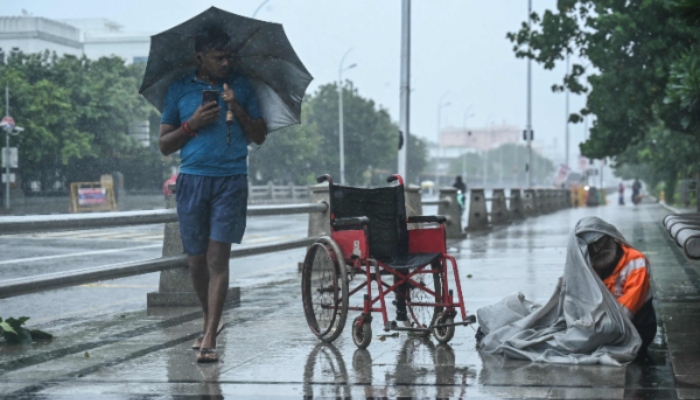
BENGALURU: A low-intensity cyclone struck India's southern coastline, claiming at least three lives but sparing the region from widespread damage, officials reported.
Cyclone Fengal made landfall late Saturday, bringing sustained winds of 70-80 kilometres per hour (43-50 miles per hour).
Tamil Nadu state disaster management minister KKSSR Ramachandran confirmed that three fatalities in Chennai were caused by electrocution during the storm, as he addressed reporters late Saturday.
But damage from the cyclone was otherwise "minimal", he added.
The Times of India newspaper reported the death toll was four, adding that there was "flooding" and trees falling but "not to the extent feared".
Cyclones — the equivalent of hurricanes in the North Atlantic or typhoons in the northwestern Pacific — are a regular and deadly menace in the northern Indian Ocean.
While the storm is expected to gradually weaken into a depression later Sunday, India’s weather bureau warned of heavy rains across parts of India’s south.
It advised a total suspension of fishing operations and also said there was a "moderate to high flash flood risk" in some areas.
Fengal skirted the coast of Sri Lanka earlier this week, killing at least 12 people including six children.
Scientists have warned that storms are becoming more powerful as the world heats up due to climate change driven by burning fossil fuels.
Warmer ocean surfaces release more water vapour, which provides additional energy for storms, strengthening winds.
A warming atmosphere also allows them to hold more water, boosting rainfall.
But better forecasting and more effective evacuation planning have dramatically reduced death tolls.













